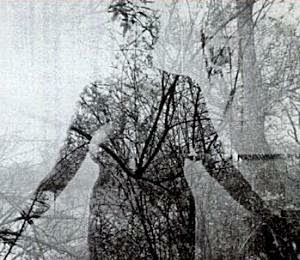is hidden from me in veils
of cloud, sometimes
I am hidden from the mountains
in veils of inattention, apathy, fatigue,
when I forget or refuse to go
down to the shore or a few yards
up the road, on a clear day, to reconfirm
that witnessing prescence.
Witness
Denise Levertov
In her poem About Political Action in which each Individual Acts from the Heart, Denise Levertov speaks to the power of contemplation and action and how we can bring together our private concerns with larger social and political concerns.
The poem also reminds us of the importance of celebrating occasional victories, no matter how small.
About Political Action in which each Individual Acts from the Heart
by Denise Levertov
each solitude into its blossoming,
when we give to each other the roses
of our communion—
a culture of gardens, horticulture not agribusiness,
arbors among the lettuce, small terrains—
when we taste in small victories sometimes
the small, ephemeral yet joyful
harvest of our striving,
great power flows from us,
luminous, a promise. Yes! ... Then
great energy flows from solitude,
and great power from communion.
Denise Levertov (1923-1997) was a British born American poet whose poetry always moves with ease between private experience and larger political events.
As a poet and citizen Levertov was mobilised by the political events of the 60's and 70's , particularly the Vietnam War, which figures prominently in her poetry, most notably her 1967 collection Sorrow Dance, which is full of poems of outrage against the Vietnam War.
As a poet and citizen Levertov was mobilised by the political events of the 60's and 70's , particularly the Vietnam War, which figures prominently in her poetry, most notably her 1967 collection Sorrow Dance, which is full of poems of outrage against the Vietnam War.
Levertov composed poems about contemporary political events, such as the Vietnam War, the peace movement, Cold War politics, war and violence and US financed wars in Central America in the 1980's and the Gulf War of 1991. Until her death in 1997, Levertov maintained an active commitment to justice and peace organizations, supporting them with benefit readings.
Levertov was well aware of the dangers and limits of "political poetry" which can become overly didactic and polemical. Her work demonstrates that an engaged political poem can disturb us, while more contemplative poems can also serve political ends by pointing us towards a vision for living that leads towards compassion, peace and justice and ultimately to meaningful social change.
Michael True writes, that in her poetry (and her life), Levertov:
"refused to surrender to that dissociation of sensibility that separates the individual person from the common life of all.More poems by Denise Levertov are here.
Earlier blog pieces on Denise Levertov are here and here.


No comments:
Post a Comment